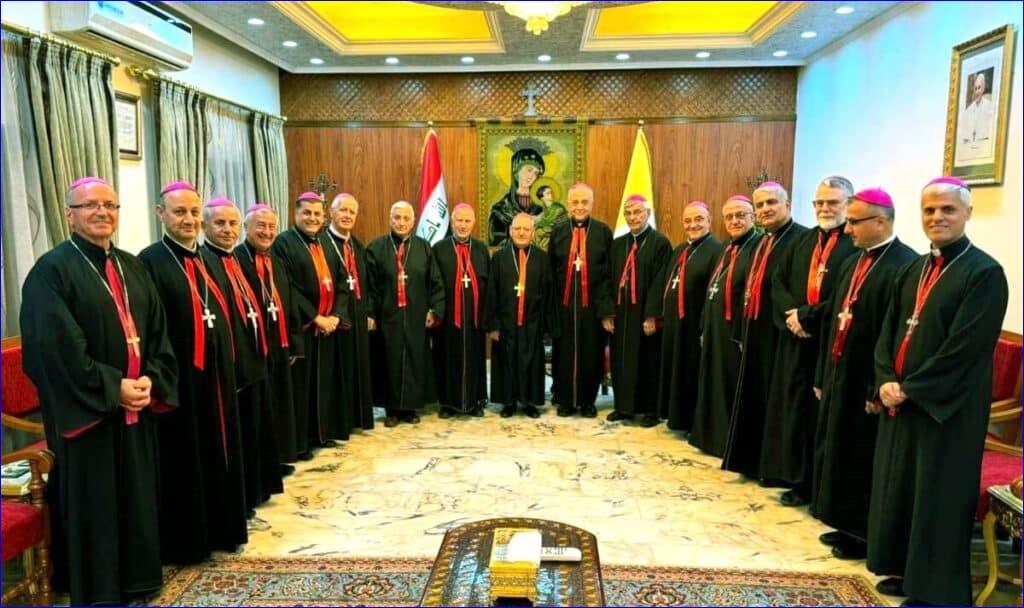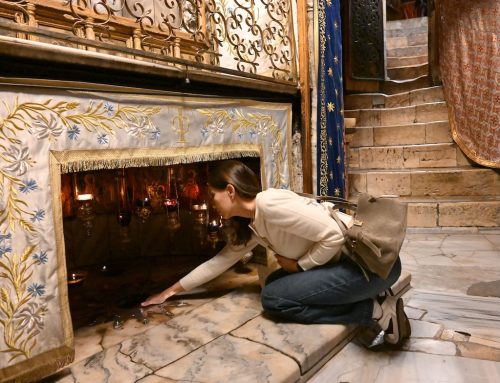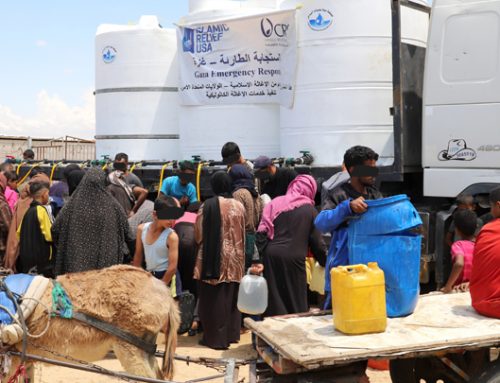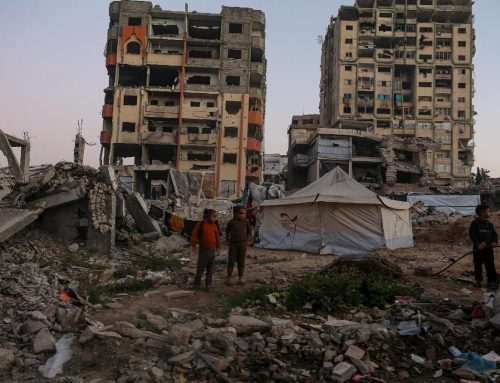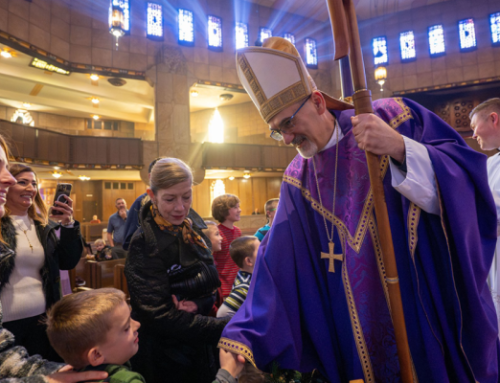Closing their annual synod meeting the Chaldean bishops highlighted the persecution of Christians and the scourge of seemingly unending conflict in the Middle East, calling on the Iraqi government to do more to protect Christians and calling for a two-state solution to end the Israel-Hamas war.
The Chaldean Patriarchate of Babylon expressed “deep concern about the international conflicts and wars taking place in the Middle East, especially the Holy Land” in a statement issued at the close of their annual synod in Baghdad, which ran from 15 — 19 July and was presided over by Cardinal Louis Raphael Sako, patriarch of the Chaldean Catholic Church.
Prior to this year’s synod, its participants sent Pope Francis a letter asking for his blessing and prayers for a fruitful discussion and for the wellbeing of both the Chaldean Church and Iraq.
In the July 19 statement, the bishops lamented what they said was the “agony of Christians” in Iraq, saying families whose ancestral roots go back generations “have suffered a lot in the past two decades from the deprivation of their rights, marginalisation, exclusion, and the acquisition of their property and assets”.
Many people, the bishops highlighted, have been forced “to emigrate searching for a better environment” as a result of the difficult situation, the bishops said, and asked the government to be “fair” to Christians.
To this end, they called on the government to promote Christians through “building confidence, enhancing national cooperation, and benefiting from their skills in developing this country”.
“We also demand that their rights be fully respected as citizens with equal representation and employment, and we refuse the seizure of their properties through the ‘exclusivity’ of any political party,” the bishops said.
The bishops also expressed gratitude to Iraqi Prime Minister Muhammad Shiaa Al-Sudani, who has served as Prime Minister since October 2022, for his recent decision to reinstate Sako as the Chaldean Patriarch. This followed Iraqi President Adul Latif Rashid last year withdrawing a decree recognising Sako as patriarch of the Chaldean Church in Iraq, allegedly on grounds that the decree held no constitutional or legal basis.
The move by the president effectively ended the institutional recognition of Sako’s office, meaning, among other things, that he would be unable to administer the Church’s assets, which would hence fall within the purview of the State.
After that decision, Sako relocated from Baghdad to Erbil, alleging that he was the victim of a smear campaign and accusing the government of trying to gain control of the Chaldean Church’s money and property.
Signed 5 June, Al-Sudani’s letter officially designated Sako as Chaldean patriarch in Iraq, based on the national constitution and a court ruling in 2013.
In their July 19 statement, the Chaldean Patriarchate voiced gratitude for the “courageous initiative” Al-Sudani showed by again recognising Sako as patriarch at the institutional level.
The statement also voiced the bishops’ hope that the Iraqi government and individual political parties would “take concrete steps in building peace and stability by implementing law and justice”.
The bishops, who have long charged that Christians are treated as second-class citizens in the country, also called on the government to restore national unity amid political tensions, and to strengthen “the concept of citizenship”.
It is also necessary, they said, to provide “adequate public services to ensure a decent life for all citizens”, and urged that priority be given “to Iraqi people interests rather than that of any ‘limited’ sectarian interests”.
Sako and other synod participants invited Al-Sudani to hold a conversation with them on 18 July, an invitation Al-Sudani accepted.
According to the patriarchate, the meeting with Al-Sudani was “a friendly conversation about the general national concern of Christians”.
Looking to the future of Eastern Christians, the bishops during the synod insisted that faith ought to be what unites the various Christian rites and churches in the country and the region.
“We are committed to each other and to our common destiny with other citizens of the regional countries; concerning about public issues, citizen’s worries, rights and requirements for a decent life,” the bishops said.
They voiced sympathy with the bishops of neighbouring countries struggling due to war or poverty, saying the Church must develop “a new vision about the future”.
“We need courageous practical steps, to stabilise Christians in their land, preserving their identity, also to enhance their role and presence,” the bishops said, adding: “Unity is our strength and salvation.”
They noted that despite the suffering Eastern Christians have endured, “we continue to love our countries and our citizens, and we would like to cooperate with them in spreading a culture of coexistence, respecting the differences of others, and consolidating hope, within a fair and civil society”.
The statement also addressed the ongoing conflict in Gaza, with the bishops stating they “believe that the best solution for the Palestinian-Israeli conflict is to establish two neighbouring states that live in peace, security, stability, and mutual trust”.
The war is having regional repercussions, and surrounding countries are getting increasingly pulled into the conflict, especially as tensions continue to rise between Israel and Lebanon’s Hezbollah, fuelling fears that another war between Israel and Lebanon could soon erupt.
Many, including Pope Francis and his top aides, have consistently advocated for the two-state solution as a means not only of ending the current war, but for achieving a lasting peace between Israel and Palestine and bringing one of the world’s most longstanding conflicts to an end.
By aina.org

